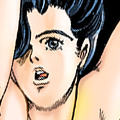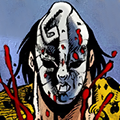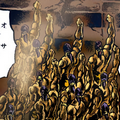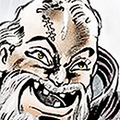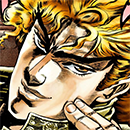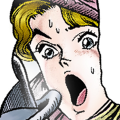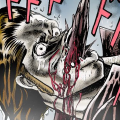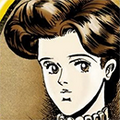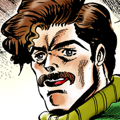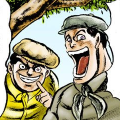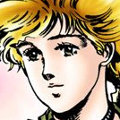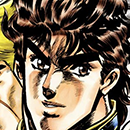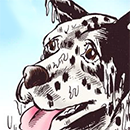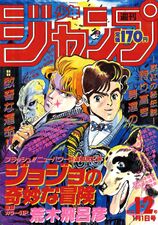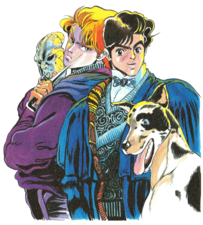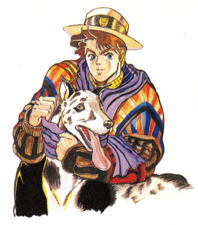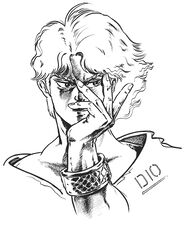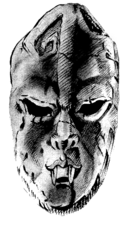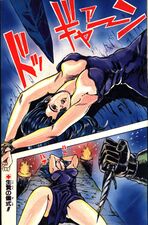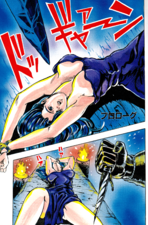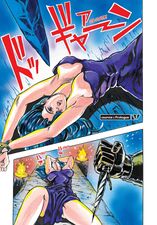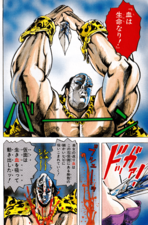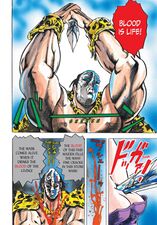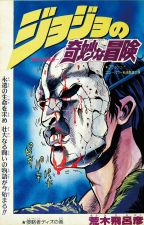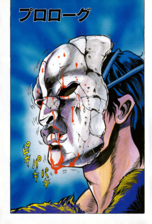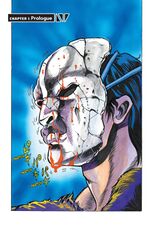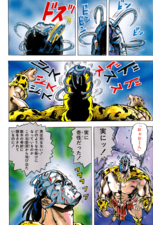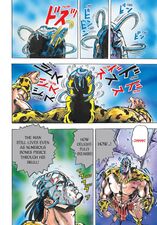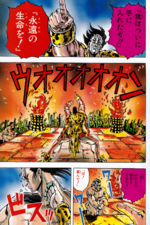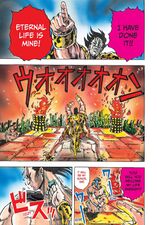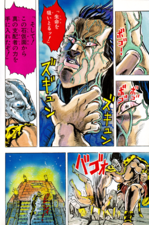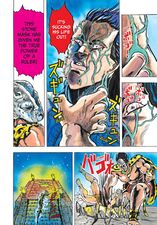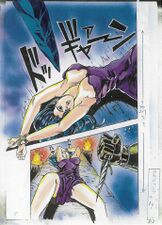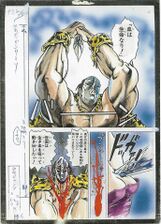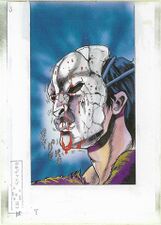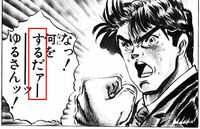Phantom Blood - Chapter 1
Prologue (プロローグ, Purorōgu), originally Dio the Invader (侵略者ディオ, Shinryakusha Dio) in the WSJ and tankobon releases, is the first chapter of Phantom Blood and the first chapter of the JoJo's Bizarre Adventure manga series.
Summary
Sometime between the 12th and 16th century, an ancient Aztec ritual takes place in Mexico, where a man wearing a Stone Mask sacrifices a young woman, stabbing her through the chest. Her blood splatters onto the mask, and bone-like prongs sprout from it piercing the man's head. Despite this, he remains alive, and screams to his audience that he has gained eternal life. Asking one of his tribesmen to sacrifice his life force, the masked man's fingers pierce his subordinate's neck and drains him of his blood. The narration tells of the sudden historical disappearance of this great tribe and the mysteries left surrounding the Mask, as well as the future destiny it ravels for two youngers.
In the year 1880, Dario Brando, an old man on his deathbed, tells his son, Dio, of debt that a man owes him. He recalls that in 1868, he and an accompanying woman stumbled upon a carriage accident on their way from a bar, and decided to steal valuables from the corpses. Strangely to him, he discovers a Stone Mask, but disregards it as disgusting. Unbeknownst to Dario, the father George Joestar had survived the crash, as did his infant son, Jonathan, although his wife had died protecting the baby. Thinking Dario had come to save them, George offered Dario a reward for his "kindness".
In the present, Dario tells Dio to mail a certain letter to the Joestars, as he is sure George would foster Dio as the fulfillment of his debt. Not long afterward, Dario dies. Standing in front of his father's grave, Dio recalls all of the man's misdeeds toward him and his mother, and as a "goodbye," spits on the grave. He promises his father that he will take advantage of the Joestars to rise on the social ladder and become the most successful person he can be, for himself and not for Dario.
At a different location, two boys have stolen the Erina's Doll of Erina, a young girl, bullying her. However, a third youth appears and comes to her rescue, only to be easily overpowered by the other two. His nose bloodied, the boy pulls out a handkerchief with his name embroidered on it: Jonathan Joestar. The bullies, spiteful of the privilege he has as a rich person, beat Jonathan up further. In the end, he is able to get Erina's doll back, but when Erina attempts to check on him, he slaps her hand away, claiming he helped her in order to be a true gentleman and not for her thanks. He exclaims that if he is to someday win against his adversaries, he must have courage to help those in need, even if at a disadvantage. As he leaves, Erina picks up the embroidered, dirty handkerchief he had forgotten behind, and ponders about his gentlemanliness.
When Jonathan returns home, a carriage arrives, carrying Dio. Jonathan promptly introduces himself to the boy who will now be living with him and his father, referring to himself as "JoJo". Jonathan's dog, Danny, appears, and Jonathan beckons him over to introduce him as well. However, Dio brutally knees Danny in the jaw without warning, shocking and infuriating Jonathan. Internally, Dio begins devising his plan to psychologically and physically torture Jonathan in order to remain the sole heir of the Joestar fortune.
Appearances
Author's Comment
Gallery
Colored Pages
Manuscripts
Trivia
- The volumization introduces a typographical error where Jonathan uses the line "Nani o suru da" (何をするだァーッ) instead of "Nani o surun da" (何をするんだァーッ). This error was not fixed for 15 years until the paperback edition and the 66th print of the tankōbon, and has since been replicated in other works such as All-Star Battle. The Phantom Blood PS2 game fixes the typo, but uses the original erroneous line in Story and Chapter Mode once Story Mode has been beaten once. The error became somewhat popular among Japanese fans.[4]
- During Dio's first appearance, he is seen to be reading a copy of Gorgeous Irene, one of Araki's earlier works.
